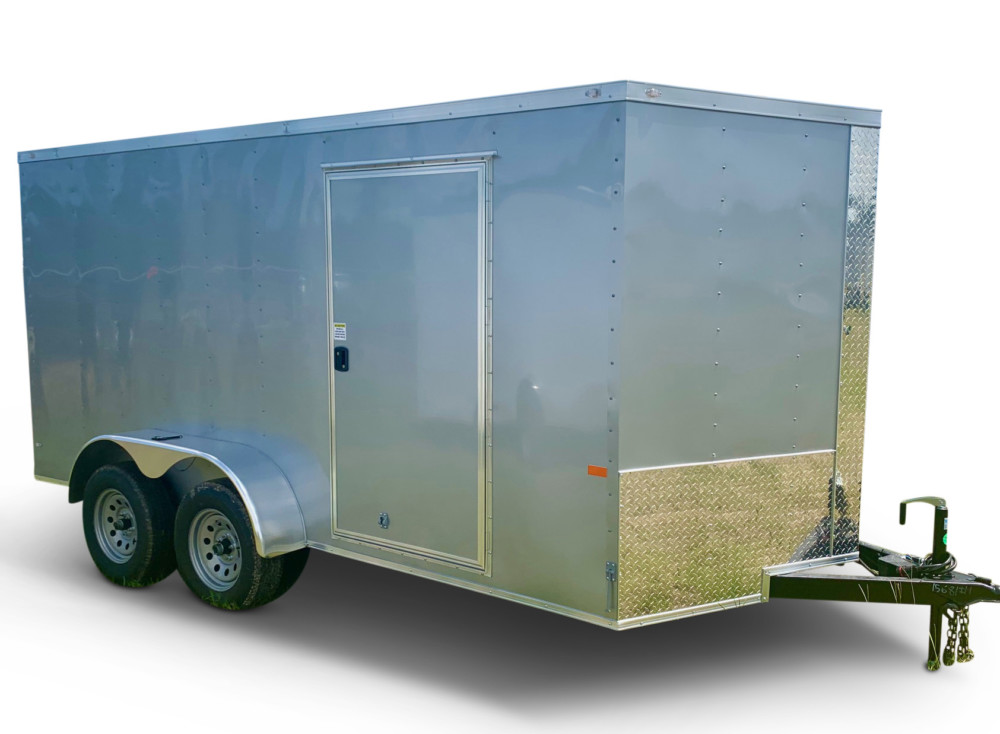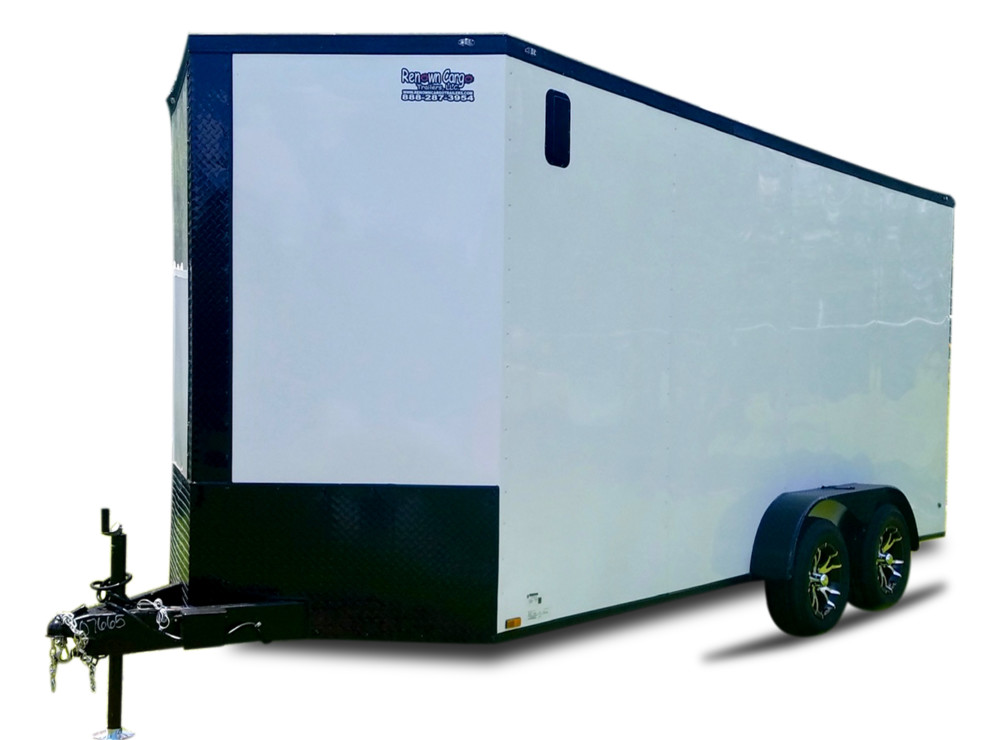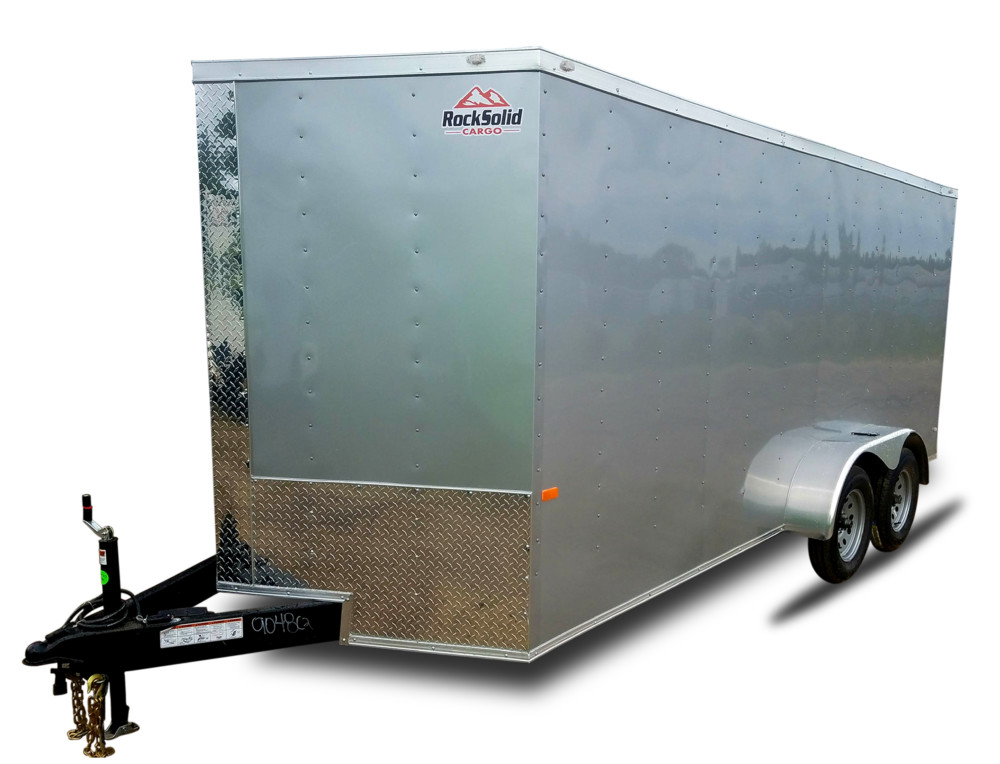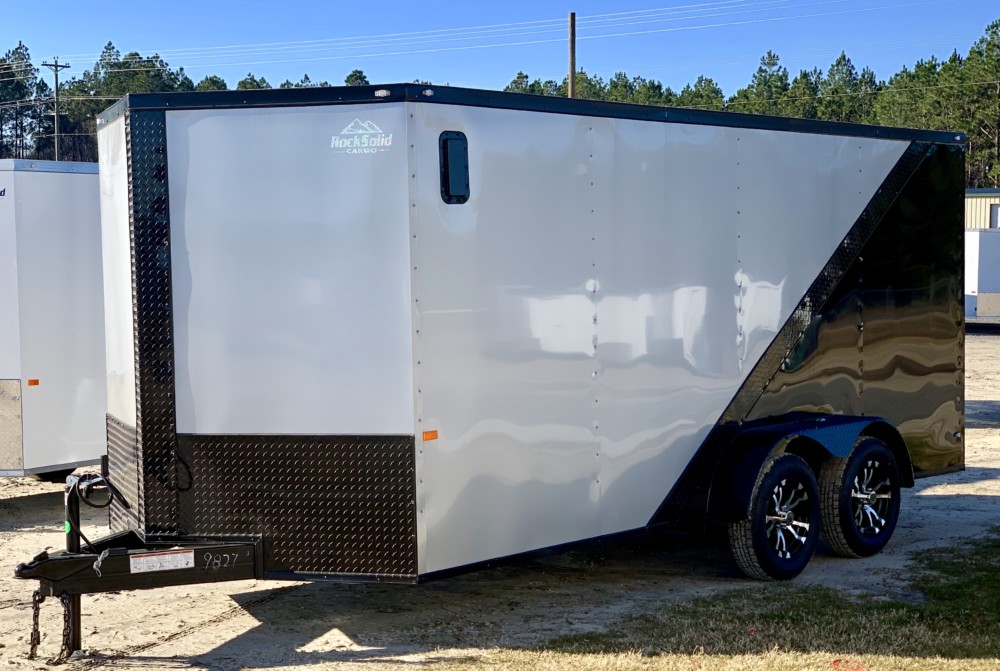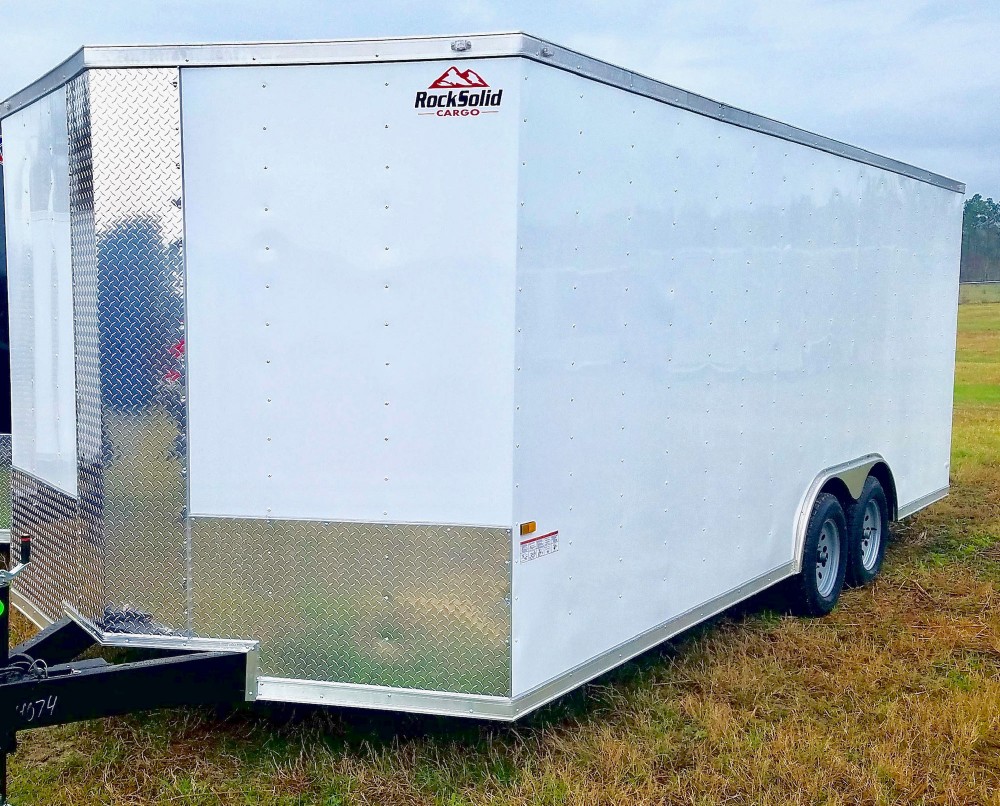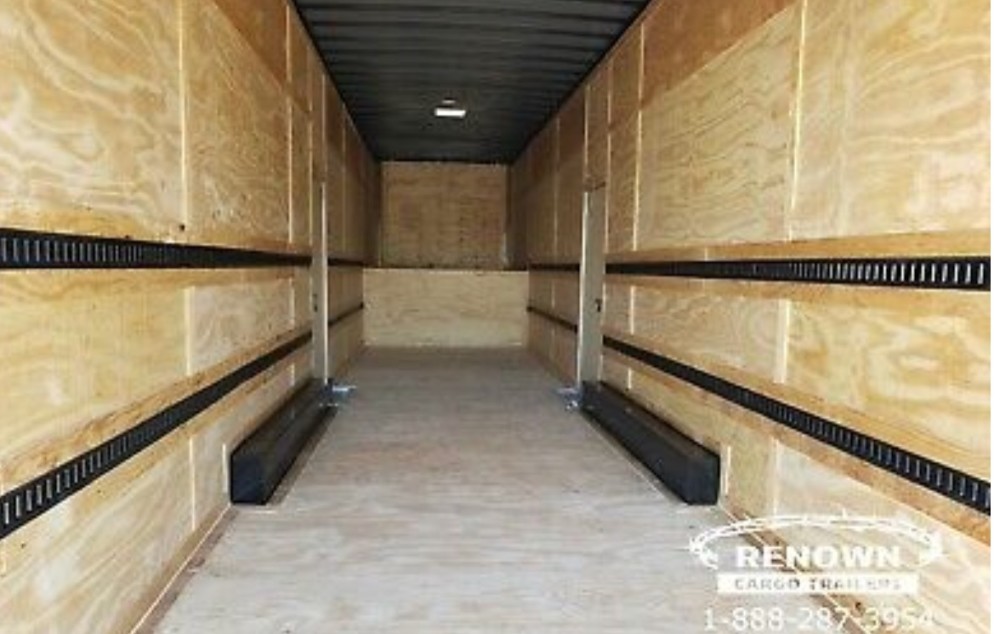
When it comes to traveling with enclosed cargo, securing it correctly is an absolute necessity. As you travel, your motorcycles, equipment, and other cargo will shift and move about the trailer if you do not have it properly tied down. That is where some reliable tie-downs for trailers are a vital component for every enclosed cargo trailer. But what are tie-downs for trailers? Where do you attach them to the cargo trailer? What kind of cargo can be secured with tie-downs for trailers?
In this guide, we will discuss the purpose of tie-downs for trailers, what they are, and cover some tips and tricks for how to use them to secure your cargo the most securely. Hold on tight as we get rolling out to the world of tie-downs for trailers.
What are Tie-Downs for Trailers?
Tie-downs for trailers are heavy-duty straps that are used to secure hefty cargo so it cannot be jostled about while in motion. Made to be capable of securing monumental payload weights, cargo tie-downs are designed to keep even heavy motorcycles or vehicles safe and secure in transit.
Most cargo tie-downs consist of a strap or net, some form of a hook to attach it to an anchor. Oftentimes, tie-downs for trailers will include a mechanism called a ratchet to tighten and loosen the strap. With the strap or net portion typically being made from super-tough Nylon and the hook being made from a steel alloy, the materials used are intended to be stout and secure.
Available in nearly every color and a variety of materials, cargo tie-downs come in a variety of lengths. Typically, you can get tie-downs in lengths from about 6 feet for smaller loads, to about 40 feet for larger cargo.
Quick terms:
- Break Weight: The break weight refers to the maximum weight that the cargo tie-down can support before breaking. This limit should be available on every type of tie-down for trailers. The break weight will be a higher number than the working load strength as it is not intended to be the everyday capacity.
- Working Load Strength: This refers to the everyday weight limit that the cargo tie-downs are capable of supporting. This weight is meant to indicate the daily conditions that the tie-downs can be used in that will not cause damage. This will be lower than the break weight as the working load strength is meant to be safe for continued use on a daily basis.
The Nitty Gritty: Types of Straps and Hooks
Digging a little deeper into the types of tie-downs for trailers, there are a few different types of straps and hooks available to secure your cargo. Though there are numerous types on the market, here are the most common straps and hooks for cargo tie-downs:
Types of Straps:
- Lashing straps: Lashing straps are intended to be used with smaller loads and weights. With easy-to-use gator clips, a smaller working load strength, and lighter break strength, lashing straps are ideal for loads around 100 lbs and lighter.
- Cam buckle straps: Cam buckle straps are intended for medium loads like ATVs and dirt bikes and are going to have a heavier capacity than lashing straps. With a working load strength of around 500 lbs and a break strength of up to 1,500 lbs, cam buckle straps are ideally used when securing moderately heavy cargo.
- Ratchet straps: Ratchet straps are the heaviest duty of tie-downs for trailers that are used for large and weighty loads. Named after the locking mechanism to secure the straps in one position, the ratchet straps have an easy-to-use securing instrument. The working load strength of most ratchet straps is an impressive 5,000 lbs and the break weight of ratchet straps is 15,000 lbs. Ideal for the largest cargo, motorcycles, automobiles, and industrial loads, ratchet straps are a hefty option for motorcycle tie-downs for trailers or cargo tie-downs for trailers.
Types of Hooks:
- S-hook: As the typical standard on most types of motorcycle tie-downs for trailers and cargo tie-downs, the s-hook is made from a steel alloy in the shape of an “S.” With one end of the s-hook being closed around the end of the strap and the other end being open, these hooks are easy to attach to nearly any anchor type.
- Snap hook: The snap hook is going to include a closing hook that is more secure than the s-hook. By snapping around the anchor, the snap hook needs to be unhitched to be removed. This gives cargo an extra layer of protection in transit and is compatible with most types of anchors.
- Flat hook: The flat hook is a versatile hook shape that is unobtrusive. The flat hook is designed to be secured around the rub rails of trailers and can be secured to other cargo tie-downs for trailers as well.
- J-hook: Used to tightly grip the anchor, j-hooks are a multi-point hook that is on one end of some cargo tie-downs for trailers. Often used with heavy-duty straps are a hardy option for cargo securement
Where to Secure Tie-Downs for Trailers
Whether you are transporting a vintage show car or your mobile concession stand equipment, the right anchors for your tie-down are a major part of your enclosed cargo trailer. Most enclosed cargo trailers are going to be equipped with some form of anchor to secure cargo tie-downs. These anchors are attached securely to the side walls or floor in a fixed location. This provides an unyielding connection point to secure the trailer tie-down and hold cargo in place.
There are two common types of anchors found in enclosed cargo trailers. Depending on the type of cargo you intend on hauling, it is important to get the right anchor to ensure that your haul gets there safe and sound. Here at Renown Cargo Trailers, we can equip your enclosed cargo trailer with either d-rings, e-tracks, or both if you need a more diverse anchoring system.
Types of anchors for tie-downs for trailers
- D-rings: D-rings are small half-rounded rings that are embedded into the floor or sidewalls of a trailer. Providing a fixed point for attaching cargo tie-downs, d-rings are ideal for transporting the same type of cargo over and over. You may want to install d-rings into your trailer if you plan on using motorcycle tie-downs for trailers, automobile tie-downs, or other vehicle tie-downs for trailers.
The downside of d-rings as cargo anchors is that they do not offer much in the way of flexibility. D-rings are secured to a fixed point that may limit your hauling capabilities depending on what you are needing your enclosed cargo trailer to carry.
- E-tracks: As the name suggests, e-tracks are E-shaped tracks that are installed into the floor or side walls of a cargo trailer. These versatile anchoring systems have multiple slats in which a cargo tie-down and be attached. This offers numerous points of contact for your cargo tie-downs and allows more flexibility for what cargo you can carry. E-tracks can also be combined with d-rings to create a system of anchor points to attach cargo tie-downs for trailers.
Tips and Tricks for the Most Secure Cargo Tie-Downs
Whether you are transporting sound equipment to your next concert or bringing your ATV along for a weekend in the great outdoors, knowing how to utilize tie-downs for trailers is essential for the long haul. Of course, the exact method will depend on what you are carrying, the type of cargo tie-downs you are using, and the anchoring system your trailer is equipped with. However, here are some general tips and tricks to properly securing your cargo.
- Center you load: When loading your cargo, the position in the trailer matters. By positioning the cargo in the middle of the trailer or near the hitch side, you can keep the weight of the load evenly distributed across the trailer and keep it from hitting the walls as you move. This gives it enough room to move slightly without banging up against the wall of the trailer.
- Be sure your tie-downs are tight: Once you have everything tied down, be sure to inspect the tension of the tie-downs. This will make sure all of your connections are securely in place and will not move during the trip.
- Do not over-tighten: You want to make sure that your cargo tie-downs for trailers are tight and secure, but not too tight. Especially with cargo like automobiles and motorcycles, overtightening your tie-downs for trailers could cause damage to your cargo.
- Use additional straps: It is much better to use additional tie-downs for added security than it is to have loose cargo. Use as many straps as you can.
Have the Cargo, Need the Trailer? Renown is Here to Help
Whether you are carrying something across town or across the country, Renown Cargo Trailers has the perfect enclosed cargo trailer for you. With numerous ways to customize your trailer, you add all the tie-down anchors you could ever need. Request a quote from us today.

